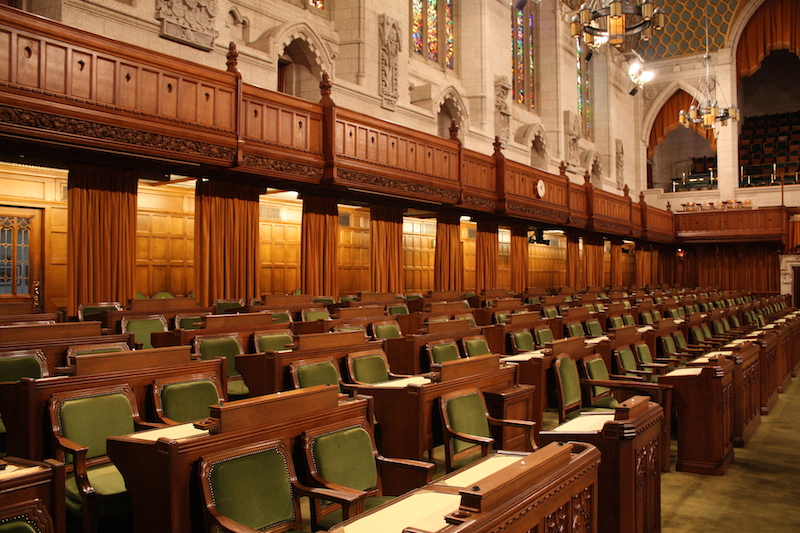
Op-ed: Why Philpott’s spending matters
The following is an op-ed written by associate professor Royce Koop, head of the department of political studies. It was originally published in the Winnipeg Free Press on Aug. 26, 2016.
Jane Philpott is generally viewed as a highly talented health minister. Unlike most other previous ministers, Philpott is herself a doctor, and was previously chief of family medicine at an Ontario hospital. This gives her a rare, specialized policy expertise in her portfolio.
Political scientist Tom McIntosh writes that Philpott “is perhaps the best minister of health in a very long time — engaged and active on a whole other level from predecessors.” Philpott’s style in the House of Commons is generally non-confrontational, and even opposition MPs have positive things to say about her. All this reflects well on Prime Minister Justin Trudeau, who took a risk by appointing Philpott, a first-time MP, as a minister following the 2015 election.
Nevertheless, Philpott has showed poor judgment in a matter related more to politics than policy. Conservative researchers learned while digging through Access to Information data that Philpott’s staff had billed no less than $1,700 for a single day of being ferried throughout Toronto and Hamilton in a privately owned luxury sedan. Philpott was subsequently caught up in semantic wrangling when she told Parliament the car was not in fact a limousine, a statement that was hotly contested by opposition Conservatives.
Perhaps more importantly, the owner of the company from which Philpott had acquired this service turned out to be a committed Liberal partisan — in an interview, Reza Shirani called the Liberal party “the political party I love.” He had volunteered on Philpott’s election campaign in the riding of Markham-Stouffville. Philpott’s staff admitted she knew who the owner of the company was before signing off on the service.
The issue has dragged on and transformed a well-regarded minister into, as journalist Joan Bryden puts it, Trudeau’s “problem pupil.”
There are two problems with Philpott’s decision. The first is simply that public officials should not use public money to live high on the hog. Scandals of this sort are catnip to political operatives and opposition politicians because, unlike other more complex examples of misbehaviour exhibited by politicians, they are easy for voters to understand and relate to. This was precisely why former Conservative minister Bev Oda’s infamous $16 glass of orange juice was so lethal to her political career. As former Liberal strategist Warren Kinsella wrote, “This is the kind of stuff that sticks.”
And why not? Shouldn’t Canadians who are struggling to make a better living for their families be annoyed to learn a public official has spent a day travelling in a luxury Lexus when more economical options were available?
These types of issues can also be lethal for governments, as their culmination over time eventually contributes to a feeling that it’s time to “throw the bums out.”
The other problem with this episode is the perception the owner of the car company was being indirectly rewarded with public money for his volunteer service in the last election campaign. Conservative MP Colin Carrie has pursued this critique, arguing in a letter to Ethics Commissioner Mary Dawson that Philpott’s use of a supporter’s company constitutes a conflict of interest. The ethics commission has agreed to investigate.
Episodes such as this and Oda’s glass of orange juice may seem trivial, but we should also not underestimate the extent to which they affect Canadians’ perceptions of democracy in this country.
In 2015, the Jim Pattison Ethical Leadership Education and Research Program at Ryerson University explored Canadians’ perceptions of political ethics in a large survey. The survey found Canadians reject the idea that only unethical people run for public office: only 20 per cent of respondents agreed with that statement. Moreover, somewhat surprisingly, given the often negative terms in which politicians are generally discussed, Canadians tend to see their politicians as well intentioned; 57 per cent of those surveyed agreed with the view that “most politicians try their best to do what is in the public interest.”
On the other hand, Canadians have a very low view of how politics transforms people after they are elected. Sixty-three per cent of the respondents to the survey agreed politics tends to “corrupt otherwise honest people.” Perhaps even more depressing, 54 per cent of respondents agreed politics is a “dirty game” that inevitably leads to unethical behaviour on the part of politicians.
Philpott has apologized for her conduct and paid back money she felt was in excess of a fair market rate for the services of a driver. She has framed this episode as a mistake, claiming that she never intended “to do anything that was wrong.” I think this is a reasonable interpretation for a first-term minister and MP, and the Ryerson survey suggests Canadians are likely to accept that explanation as well. But just as Trudeau’s appointment of a talented health minister reflected back on him, so too does this error and its subsequent handling.






